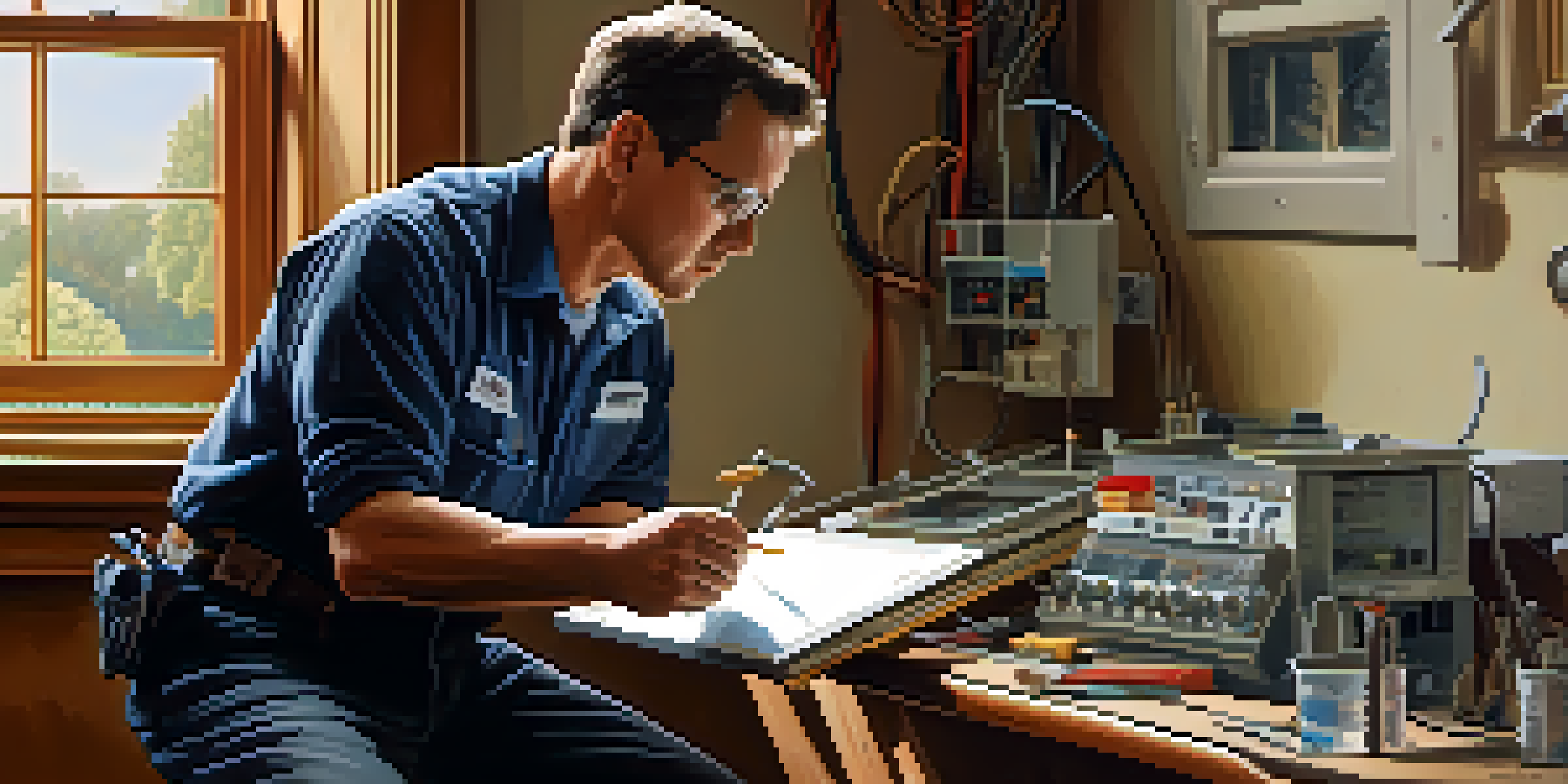What Buyers Should Know About Home Inspectors

Understanding the Role of Home Inspectors
Home inspectors play a crucial role in the home buying process. They thoroughly examine the property to identify any potential issues, ensuring that buyers are making informed decisions. Essentially, they act as a second pair of eyes, giving you peace of mind about your investment.
An investment in knowledge always pays the best interest.
Think of a home inspector as a detective, uncovering hidden problems that might not be visible at first glance. From structural integrity to electrical systems, they assess various components of the home. This detailed examination can save you from unexpected expenses down the line.
By understanding what home inspectors do, buyers can appreciate the value they bring to the table. It's not just about finding flaws; it’s about equipping you with the knowledge to negotiate repairs or adjust your offer.
Choosing the Right Home Inspector
Selecting a qualified home inspector is vital for a successful home-buying experience. Look for professionals who are licensed, insured, and have good reviews from previous clients. A reputable inspector has the expertise to spot issues that could impact your investment.

Don't hesitate to ask for recommendations from your real estate agent or friends who have recently purchased homes. It’s also wise to interview potential inspectors, asking about their experience and what their inspection process entails. This ensures that you’re comfortable with their approach.
Remember, the cheapest option isn't always the best. Investing a little more in a skilled inspector can save you significant money and stress in the long run.
What to Expect During the Inspection
A home inspection typically lasts a few hours, depending on the size and condition of the property. Expect the inspector to cover major areas like the roof, plumbing, electrical systems, and foundation. It’s an extensive process, but it’s essential for identifying potential red flags.
The bitterness of poor quality remains long after the sweetness of low price is forgotten.
During the inspection, you are encouraged to attend. This allows you to ask questions and gain firsthand knowledge about any issues. Plus, seeing the problems can help you understand the severity and urgency of repairs needed.
Afterward, you'll receive a detailed report outlining the inspector's findings. This document serves as a valuable tool for negotiations and planning any necessary repairs.
Common Issues Found by Home Inspectors
Home inspectors often encounter a range of common issues that can surprise buyers. These include roof damage, outdated electrical systems, plumbing leaks, and pest infestations. Understanding these potential pitfalls can prepare you for what to expect.
For instance, a leaky roof might seem minor but could lead to significant damage if not addressed. Similarly, old wiring can be a fire hazard, which makes it crucial to prioritize these findings. Knowing these issues helps you make informed decisions about repairs and negotiations.
Being aware of these common problems can also help you during your own property search. You can spot red flags early on and avoid homes that may turn into financial headaches.
The Importance of a Home Inspection Contingency
Including a home inspection contingency in your offer can protect you as a buyer. This clause gives you the right to back out of the deal or negotiate repairs based on the inspection results. It’s a safety net that helps you avoid costly surprises.
Without this contingency, you might find yourself committed to a property that has serious issues. Imagine discovering a major plumbing problem after you've already signed the contract—this could lead to a financial strain that could have been avoided.
Always consult with your real estate agent to ensure this contingency is part of your purchase agreement. It’s a small step that can save you from potential headaches.
Understanding the Inspection Report
Once the inspection is complete, you’ll receive a report detailing the findings. Understanding this document is crucial, as it highlights both major and minor issues within the home. Familiarize yourself with the terminology used, so you know what to look for.
A well-written report often categorizes issues into 'urgent,' 'important,' and 'minor.' This helps prioritize repairs and gives you a clearer picture of the property’s condition. If you come across jargon or terms you don’t understand, don’t hesitate to ask your inspector for clarification.
Ultimately, this inspection report becomes a powerful tool for negotiations and future planning. Knowing what you're dealing with allows you to make informed choices moving forward.
Post-Inspection Next Steps for Buyers
After the inspection, you’ll need to decide how to proceed based on the findings. If significant issues arise, you may want to negotiate repairs or a lower price with the seller. This is where the inspection report becomes invaluable in your discussions.
Alternatively, if the home is in good condition, you might feel more confident moving forward with the purchase. In this case, consider using the inspection findings to plan for future maintenance or improvements.

Whatever the outcome, keep the inspection report for your records. It can serve as a reference point for any future repairs or renovations, ensuring you stay ahead of potential issues.